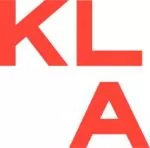- within Tax topic(s)
- within Strategy, Food, Drugs, Healthcare, Life Sciences and Transport topic(s)
The Law No. 14,592/2023, which addresses various tax and economic topics, was published on May 30th, 2023.
We highlight the following specific tax matters:
Exclusion of ICMS from the PIS/COFINS credits basis
The first controversial point of the new law concerns the exclusion of the State VAT (ICMS) from the basis for the credits of the contributions to PIS and COFINS (register of credits related to inputs to be offset against the PIS/COFINS due on the revenues). This provision was already included in the original text of Provisional Measure No. 1,159/2023 and had been widely discussed since.
This measure was taken in line with the well-known ruling by the Brazilian Supreme Court (STF), known as the "case of the century," which established that the ICMS levied on the sale of goods should be excluded from the calculation basis of PIS/COFINS, as it does not constitute revenue or billing.
As a result, the amounts of PIS/COFINS owed by taxpayers decreased significantly, and many companies were able to recover undue taxes paid in previous years.
Now, according to the Law No. 14,592/2023, the same logic of the ruling must be observed for the accounting of PIS/COFINS tax credits on the inputs acquired by the taxpayer. In other words, the portion of ICMS indicated on the purchase invoices for goods and services should be disregarded when calculating these credits. The government is thus seeking to equalize the calculation of these contributions by reducing the impact of the Supreme Court's decision, since the reduction of the credits will increase the final PIS/COFINS due.
However, this law is expected to lead to a new series of judicial discussions. Its motivation is strictly economic, and it distorts the entire rationale of the non-cumulative regime of PIS/COFINS, which adopts the indirect subtractive method (or "base against base" method), in which the levying of the social contributions in the previous stage is not relevant for the acquirer to calculate its credits. Even if the ICMS portion has not been taxed by the supplier, it represents a cost or value of the goods and services to the acquirer and, therefore, should be basis for the calculation of the PIS/COFINS credits.
In addition, there are grounds to question the non-observance of the Constitutional Principle of 90-days Anteriority, which establishes a 90-day period before the beginning of the enforceability of laws that create or increase taxes. In this case, the effect of the new legislation is to increase the contributions effectively due by taxpayers, as it reduces the credits they are entitled to.
PERSE
The new law also brought changes to the Emergency Program for the Recovery of the Event Sector (PERSE).
In addition to reducing the sectors benefiting from a zero rate of Corporate Income Tax (IRPJ), Social Contribution on Net Income (CSLL), and Contributions to PIS/COFINS, the law now requires registration with the CADASTUR as of March 18, 2022, for some sector to enjoy such benefits. This restriction was previously only included in subsidiary regulations of the Federal Revenue that had no legal grounds.
Furthermore, the law amended the text of the Law No. 14,148/2021, which previously provided that PERSE would apply to the direct and indirect results and revenues obtained by the event sector, now specifying that it applies only to direct results and revenues from such activities.
As this law represents another measure to reduce the scope of this program by the government, with the aim of adjusting the federal budget, it may also be subject to discussion from various angles, depending on each taxpayer's situation.
For example, the reduction and exclusion of some sectors should have observed the Constitutional Principles of Annual Anteriority (for IRPJ) and 90-days Anteriority (for CSLL/PIS/COFINS), as it represents an effective increase of the tax burden. Furthermore, it is questionable whether it is possible to change the tax incentive program while it is ongoing, affecting taxpayers who were already benefiting from its terms.
Other tax benefits
Among the other provisions of Law No. 14,592/2023, there was also an extension of the exemption of PIS and COFINS on diesel, biodiesel, and cooking gas until the end of 2023; the establishment of a zero tax rate for these contributions in the aviation sector until December 31, 2026; and the suspension of PIS/COFINS collection until December 31, 2023, for domestic acquisitions and imports of oil for fuel production.
KLA's Tax area is available to clarify any doubts and assist in analyzing the convenience of questioning the provisions of this new legislation.
The content of this article is intended to provide a general guide to the subject matter. Specialist advice should be sought about your specific circumstances.



